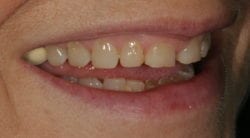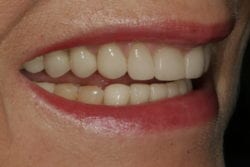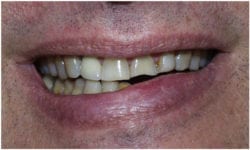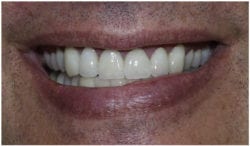
Our teeth are covered by a thin layer of material called tooth enamel. Your enamel’s job is to protect your teeth from daily wear and tear such as grinding down food. Our tooth enamel is under attack every single day by the food we eat and the beverages we drink. Sugar is particularly harmful to our enamel.
Tooth enamel is highly sensitive to changes in the pH of saliva. Over time, certain foods, medications, and/or stomach acid from a condition like gastroesophageal reflux disease (GERD) can cause tooth enamel to dissolve and erode.
Most patients don’t notice damage caused by acid erosion until the advanced stages. This is an alarming issue because once tooth enamel is lost, it will not grow back. When the enamel dissolves, the teeth become more susceptible to damage, discoloration, and decay. Tooth enamel erosion is one of the more serious dental concerns patients can face.
Signs of Tooth Enamel Erosion
Common symptoms of tooth erosion include:
- Tooth sensitivity, especially to hot, cold, or sweet food and drinks
- Chipped teeth or sharp tooth edges
- Tooth discoloration or darkening of the teeth
- Thinning or shortened teeth may be recognized as changes in the bite
- Pain or irritation in the mouth
Treatment for Tooth Enamel Erosion
If your teeth are already affected by dental erosion, our dental care team can provide a range of cosmetic and restorative dental treatment options to repair damage and restore teeth to their optimal health and appearance.
Dr. Conover treats patients who have been affected by tooth erosion using:
- Porcelain veneers – Teeth veneers are thin shells of tooth-like material that are permanently adhered to the front of the tooth. They will be color matched to blend in naturally with the rest of your smile.
- Dental crowns – Dental Crowns will cover the entire tooth protecting it from further erosion and damage.
- Cosmetic bonding – Bonding is an economical way to disguise almost any imperfection. It is a routine treatment that can be completed in a single visit.
How to Prevent Further Enamel Erosion
One of the best ways to prevent tooth erosion is to practice healthy dental habits. This should include regular visits to the dentist along with brushing twice daily using a dentin-sensitive toothpaste.
If you suspect acid reflux disease or GERD, consult with your physician. Though these are chronic conditions, they can be managed through a combination of medication and lifestyle changes. The following treatments may be helpful:
- Dietary changes to remove trigger foods which often include fried or greasy food, tomato based food, chocolate, carbonated beverages, citrus fruits, coffee and alcohol
- Quit smoking
- Lose weight, acid reflux and GERD are more common in patients who are overweight or obese
- Drink plenty of water
- Elevate the head of your bed at least 6 inches higher than the foot
- While antacids can help to relieve the burning sensation caused by acid reflux, be sure not to overuse these medications as they can also cause dental problems.
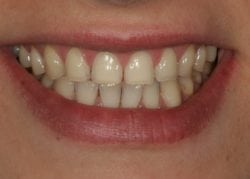
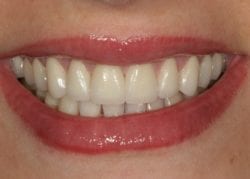
Schedule a Dental Exam & Consultation Today
Dr. Conover is welcoming new patients in Center City Philadelphia and surrounding communities. Call us at (215) 395-6076, or request an appointment online today.

